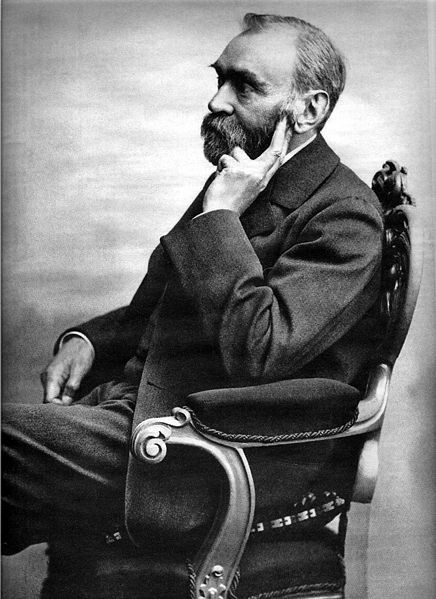Alfred Nobel: Dynamite Inventor Dies in Italy
Richard Cavendish remembers the life of Alfred Nobel, who died on December 10th, 1896.

Alfred Nobel’s death at the age of sixty-three in the Italian resort of San Remo, far from his native Sweden, was an appropriate reflection of the international but somewhat rootless nature of his life. He was born in Stockholm but brought up in Russia where his father was the manufacturer of explosives and torpedoes, and this family involvement with instruments of destruction was to bring him both his fortune and the self-loathing that ultimately propelled him to found the international prizes which keep his memory alive.
After a series of experiments in Sweden in the 1860s, he invented dynamite – a mixture of nitroglycerine and kieselguhr – which added a new easily usable weapon to mankind’s armoury. Among the earliest uses of it were the Fenian terrorists in Ireland – late 19th-century forerunners of the IRA. Nobel also invested heavily in the developing oilfields of southern Russia and together with the wealth created from his armaments business, he amassed a large fortune. The involvement with agents of destruction – together with better litigation over the patenting of his invention – left him with a fairly sour and pessimistic view of human nature. He believed that the only thing that would deter the world from future war would be a power so destructive that it would make war impossible – it would have been interesting to have his observations on the atomic bomb.
The awards that his fortune founded – prizes annually for the best work in physics, chemistry, physiology and medicine, literature and the ‘cause of universal peace’ were first made in 1901. In recent years the Nobel Prize for Peace, administered by a committee of the Norwegian parliament, has gone to such high-profile world figures as Anwar Sadat and Menachem Begin for their involvement in the Middle East peace progress, and in South Africa to F. W. de Klerk and Nelson Mandela. Nobel himself remains an enigmatic and somewhat chilling figure whose philanthropy went hand-in-hand with a bleak analysis of the human race as ‘tailless apes running about on an aimless projectile in space.